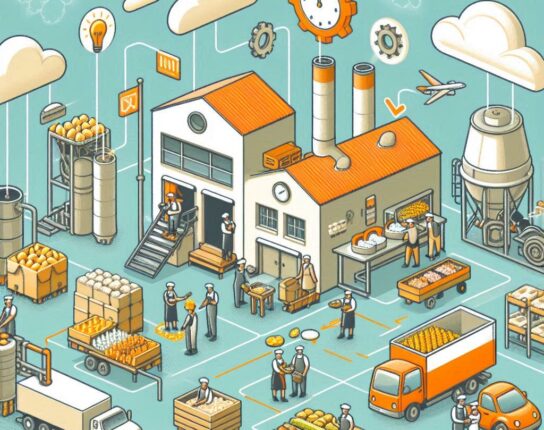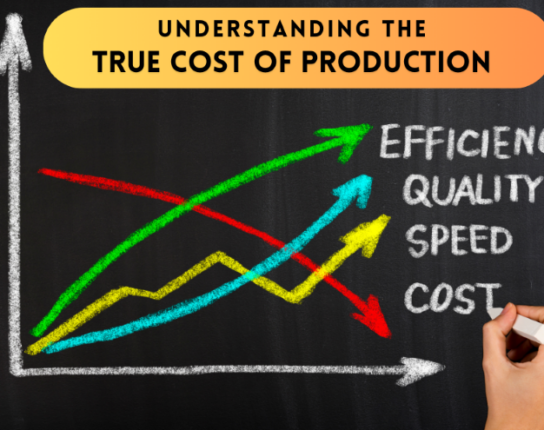Understanding Risk Management in the Food and Beverage Manufacturing Industry
The very nature of food production necessitates that manufacturers manage food safety, quality control, supply chain disruptions and regulatory compliance on a daily basis, on top of ensuring an efficient and profitable business.
In this blog, we’ll explore the various aspects of risk management in this industry, and how Enterprise Resource Planning (ERP) systems can play a pivotal role in mitigating these risks.
The Importance of Risk Management
In the food and beverage manufacturing sector, risk management is essential for several reasons:
- Ensuring Food Safety: According to the Centers for Disease Control and Prevention (CDC), foodborne illnesses affect approximately 48 million Americans annually, resulting in 128,000 hospitalizations and 3,000 deaths. Robust risk management practices can help prevent such incidents by ensuring that food safety standards are met consistently.
- Regulatory Compliance: The food industry is heavily regulated, with stringent requirements set by bodies such as the FDA and USDA, with non-compliance resulting in heavy penalties.
- Maintaining Quality Control: Identifying potential quality issues early in the production process can help manufacturers to address them without affecting their quality standards. It can also help prevent costly and time-consuming recalls.
- Supply Chain Resilience: The global nature of food supply chains means they are vulnerable to disruptions from various factors, including natural disasters, political instability, and logistical challenges. The COVID-19 pandemic highlighted these vulnerabilities, causing widespread supply chain disruptions and shortages.
- Financial Stability: Research by McKinsey & Company shows that companies with advanced risk management practices had 20% lower costs compared to their peers. When companies have access to the right information, they can protect their bottom line and ensure long-term profitability.
Key Risk Management Strategies
To effectively manage risks, food and beverage manufacturers must implement a variety of strategies. Hazard Analysis and Critical Control Points (HACCP) is a systematic approach to food safety that identifies potential hazards and implements controls to prevent them. This process involves rigorous monitoring and documentation to ensure all safety measures are effective. Additionally, supplier quality management is crucial; working closely with suppliers to ensure they meet the required standards through regular audits, quality checks, and establishing strong relationships helps ensure reliable and safe supply chains.
Employee training and education are essential components of risk management. Ensuring that all employees are well-trained in food safety practices and risk management protocols through continuous education and training programs helps keep staff updated on the latest industry standards and practices. Finally, technology integration significantly enhances risk management by leveraging tools to monitor and control various aspects of the production process. This includes the use of ERP systems and advanced analytics to gain real-time insights into operations.
The Role of ERP in Risk Management
ERP systems are powerful tools that integrate various business processes into a unified system, providing comprehensive oversight and control. In the context of risk management in the food and beverage manufacturing industry, ERP systems offer several benefits:
- Centralized data management: consolidate data from different departments, providing a single source of truth. This centralization allows for better tracking and monitoring of risks across the entire organization.
- Real-time monitoring: manufacturers can identify and address issues as they arise and help prevent minor problems from escalating into major crises. For example, real time temperature data can alert a dairy producer about a temperature anomaly in their storage facility before it affects product quality.
- Regulatory compliance: automate documentation processes, track compliance status, and alert users to any potential non-compliance issues, making it easier to stay on top of regulatory requirements.
- Quality control: monitor production processes and identify deviations from the norm to maintain high-quality standards.
- Supply chain management: with visibility into the entire supply chain, manufacturers can make informed decisions and manage risks related to supplier performance, logistics, and inventory management.
Harvest Food Solutions: A Partner in Risk Management
Harvest Food Solutions is built specifically to address the unique challenges faced by food manufacturers, with industry-specific features such as batch tracking, quality control modules, and compliance management tools. Our ERP solution is scalable, allowing manufacturers to adapt as their business grows, ensuring the system can accommodate changing needs and evolving risks.
By partnering with Harvest Food Solutions, manufacturers can enhance their risk management capabilities, ensuring a safe, efficient, and compliant production process. For more information on how Harvest Food Solutions can help your business, visit www.harvestfoodsolutions.com.










